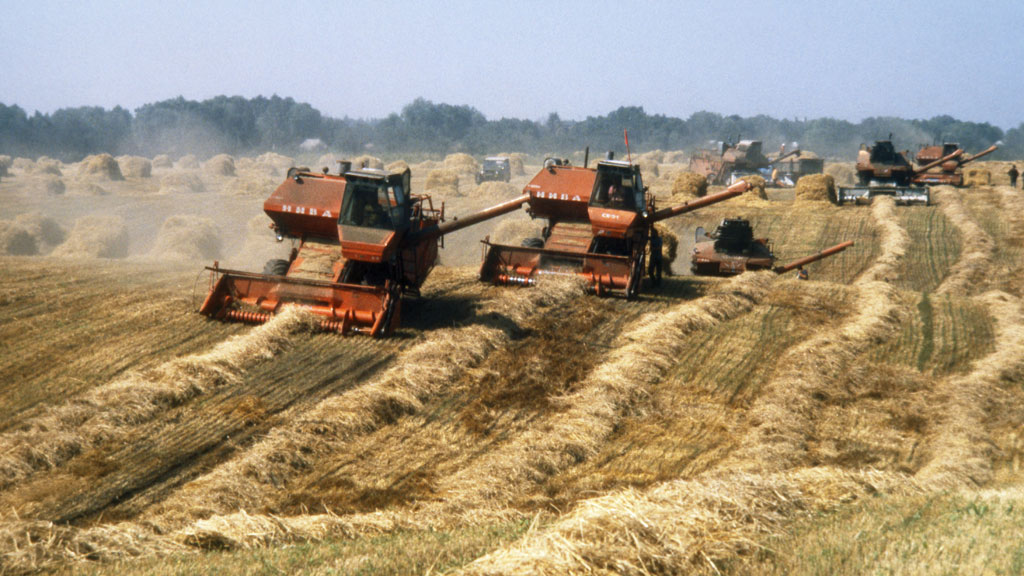China buys huge swathe of Ukraine in grab for farmland
It has a fifth of the world’s population but just 9 per cent of the world’s farm land. Now China has signed a deal to buy vast areas of arable land in Europe’s bread basket – Ukraine.

As overseas investments go, this one is pretty huge. China is buying up to 3 million hectares of farmland in Ukraine, an area the size of Belgium. Two state-owned firms will take over the land in the eastern Dniepropetrovsk region to grow crops and raise pigs for consumption back home.
The Kiev Post called it an “unprecedented foreign investment”, estimated at more than $2.6bn, fuelled by China’s growing demand for food which it simply cannot grow itself. In a world of economic turmoil and uncertainty over the climate, food security has become its top priority.
In 2009 China owned just 2 million hectares of farmland abroad, but things have moved fast. The ruling Communist Party, which had promised to keep the country almost completely self sufficient, is now actively outsourcing production overseas.
There have been major investments in Latin America, buying up land in countries like Brazil and Argentina to grow soya beans, corn and cotton for the domestic market. Chinese firms have also been busy buying land in Africa and Australia, travelling as far away as Tasmania in search of milk.
Eastern front
Eastern Europe is just the latest frontline. As well as Ukraine, China has recently invested 10m euros in Bulgarian land, intended to grow corn, forage and sunflower to export back home.
There are many reasons behind China’s overseas land grab, not least their own problem with food standards. With rapid urbanisation swallowing up large areas of their own arable resources, the constant drive to meet demand meant only one thing: quantity at the expense of quality.
As standards slipped, the number of food scares proliferated, from adulterated milk to rivers contaminated by dead pigs. Intensive farming practices have not helped either. With no time to lie fallow, domestic farmland is now exhausted from constant over-use.
On top of that, frost and heavy rains in northern China earlier this year badly damaged the wheat crop, spoiling as much as 20 million tonnes and rendering it unfit for human consumption.
It has led individual farmers with the resources turning abroad have begun doing just that, even faced with the risk of a backlash.
Many African countries have grown wary of such largescale purchases: Malawi is the latest country to pass laws specially targeted at Chinese traders, while there have also been reports of discontent over working conditions at some Chinese owned enterprises.
Local backlash
In 2010, Brazil passed a law banning foreigners from buying land there, although it has proved possible to bypass the rules by going through local agents. Australia’s new conservative government has also been openly hostile, pledging new laws to curb China’s advance.
But China, with its 1.2 billion population, is growing richer as well as more powerful. The national diet is changing, too. The country just purchased one of America’s top pork producers for almost $5bn – and beef is next.
The saga is not short of irony, either. The South China Morning Post points out that the quasi-military company behind the Ukrainian land purchase was initially set up in the 1950 to consolidate China’s defences against the Soviet Union.
Now it is ploughing billions of yuan into the bread basket of Europe – and keeping the red flag flying there, in the process.
-
Latest news
-
‘Authentic Stupidity’: Ben Elton’s new show explores how idiotic human beings can be5m

-
Is Israel’s evacuation of Rafah the precursor to full scale invasion?3m

-
Eurovision: Non-binary artist wins for first time2m

-
Tens of thousands march in Georgian capital against ‘foreign agents’ bill2m

-
‘Russia’s number one goal is to get troops closer to Kharkiv,’ says Ukrainian security analyst4m

-




